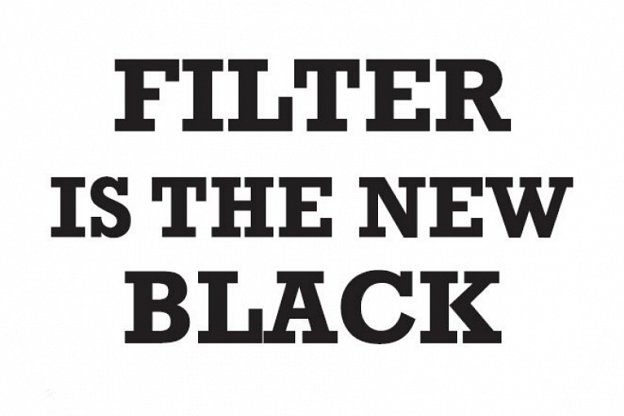Filter is the new black
- November 24, 2015
I was running a training session with Wes, manager of our lovely Barnstaple cafe, the other day. We were teaching a band of new baristas. When we asked them what their favourite coffee was, they said they might go for a latte or a flat white. A fine choice indeed. A milky, textural experience which is extremely popular. In fact, milk has never tasted so good, especially with Yeo Valley’s organic whole, produced not too far from us in the heart of the Mendips.
It occurred to me at this point in the proceedings that my own enjoyment goes through phases. I too used to have flat whites, loads in fact – and when you have such fine baristas, why not? However, now it seems that there’s a greater propensity for more experienced baristas to plump for the black stuff, filter coffee. It’s here, unfettered, that you really understand the intention of the hard-working farmers and the roaster’s translation. The nuances of the drink are many, and the flavour shifts as it ranges from piping hot to cold where, perversely, the flavour opens out and you get the full breadth of taste.
You might now be recalling your own experience of this much mistreated drink. Let’s be frank, it’s been abused over the years, sitting for hours on a hot plate in those Pyrex jugs (which seem so ubiquitous in cop shows), slowly evaporating and leaving a sticky goop behind that no amount of sugar could ever make palatable. We make ours in a vacuum flask, setting a timer and disposing of it after four hours, making sure it doesn’t go stale (or goopy).
When relating this brewing method to new team members, I use champion coffee roaster David Faulkner’s analogy of an espresso machine being an amplifier for the flavour in the espresso bean. It certainly makes a strong hit of coffee, taking those flavour notes and and turning them up to 11… It’s like a spirit/mixer.
Filter coffee, however, is reminiscent to me of wine, a drink that is of an even flavour throughout. In truth, wine and coffee have a lot in common – terroir, careful artisan producers, and fanatics that seem to take it to a level of understanding that can be just plain alienating to the uninitiated. This is something we try to make our teams aware of. There should be no snooty barriers to entry for the customer; we recommend but don’t enforce our approach.
So much care and attention goes into producing this coffee, and the flavours that much more delicate, that we suggest you don’t mix it with our lovely organic milk.
Our filter coffee changes with some regularity. World coffee production is seasonal and we follow the seasons around the world. We’ve had Yirgacheffes from Ethiopia – the great-granddaddy of varieties – (coffee has varieties, just like you do with apples for example), the pragmatically named SL28 from Uganda, a Caturra from Columbia and a Pacas from Honduras, to name but a few. Each has its own profile: one might taste like strawberries, another like green apples or even peanuts, many people’s favourite flavour.
It was this peanut-tasting coffee that was actually my favourite too, as it allowed us to do something unique. Extract Coffee Roasters had sourced the coffee through a merchant, DR Wakefield. It was a scheme of theirs to support smaller producing farms where the sale of the harvest would make a bigger impact. The El Naranjo farm is run by Maria Marcos Gaberetti, who inherited it when her husband died in 2005. Her plantation allows her to fund the education of her children, as well as spread the seeds amongst her community so that they too can profit. She used organic processes to grow her crops and waste product to fertilise them. What a woman!
We are proud of how we approach filter coffee at BTP, and I’m sure these stories are somewhere in the back of our baristas’ minds as they kick back and enjoy a mug on their break.
We’re happy to give out free samples if you want to share our excitement, and we’ll be even more happy if you take it black. Trust us, we drink a lot of it.
